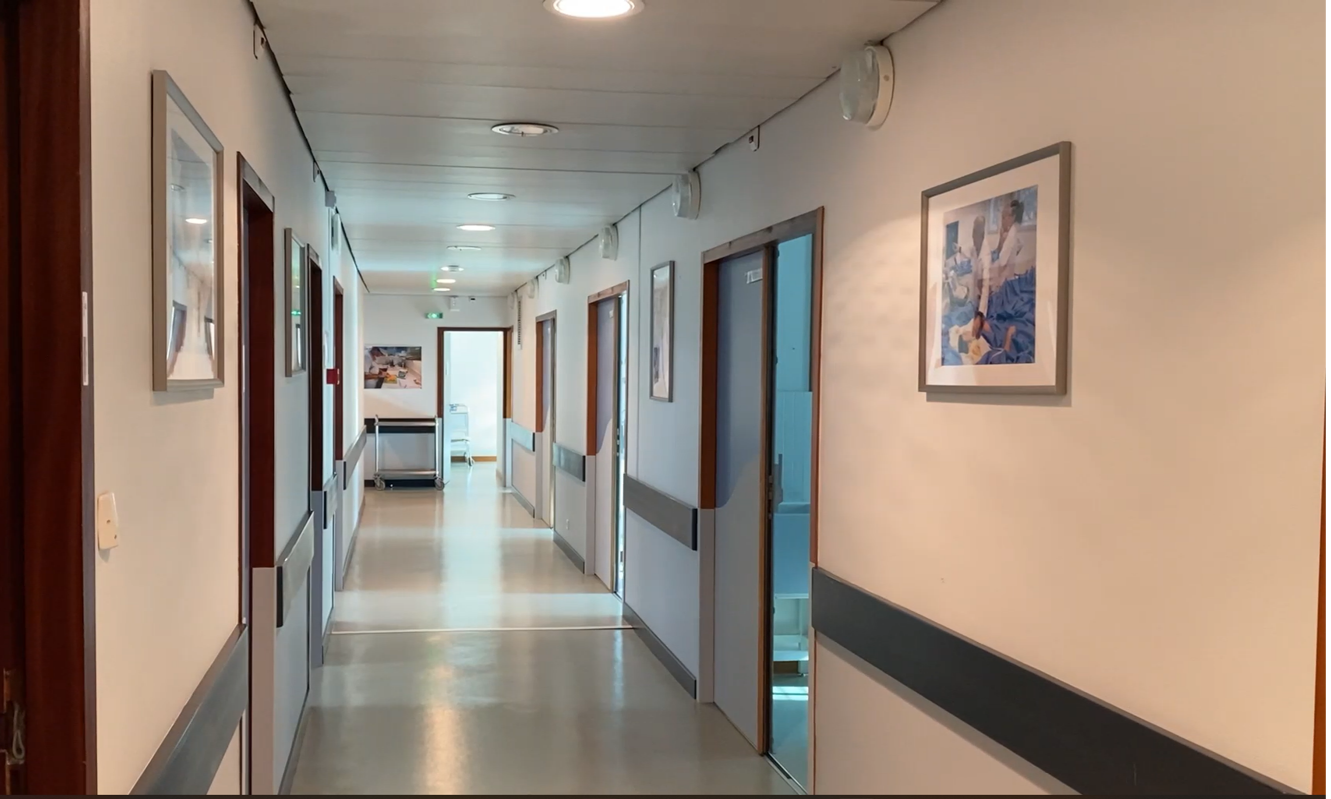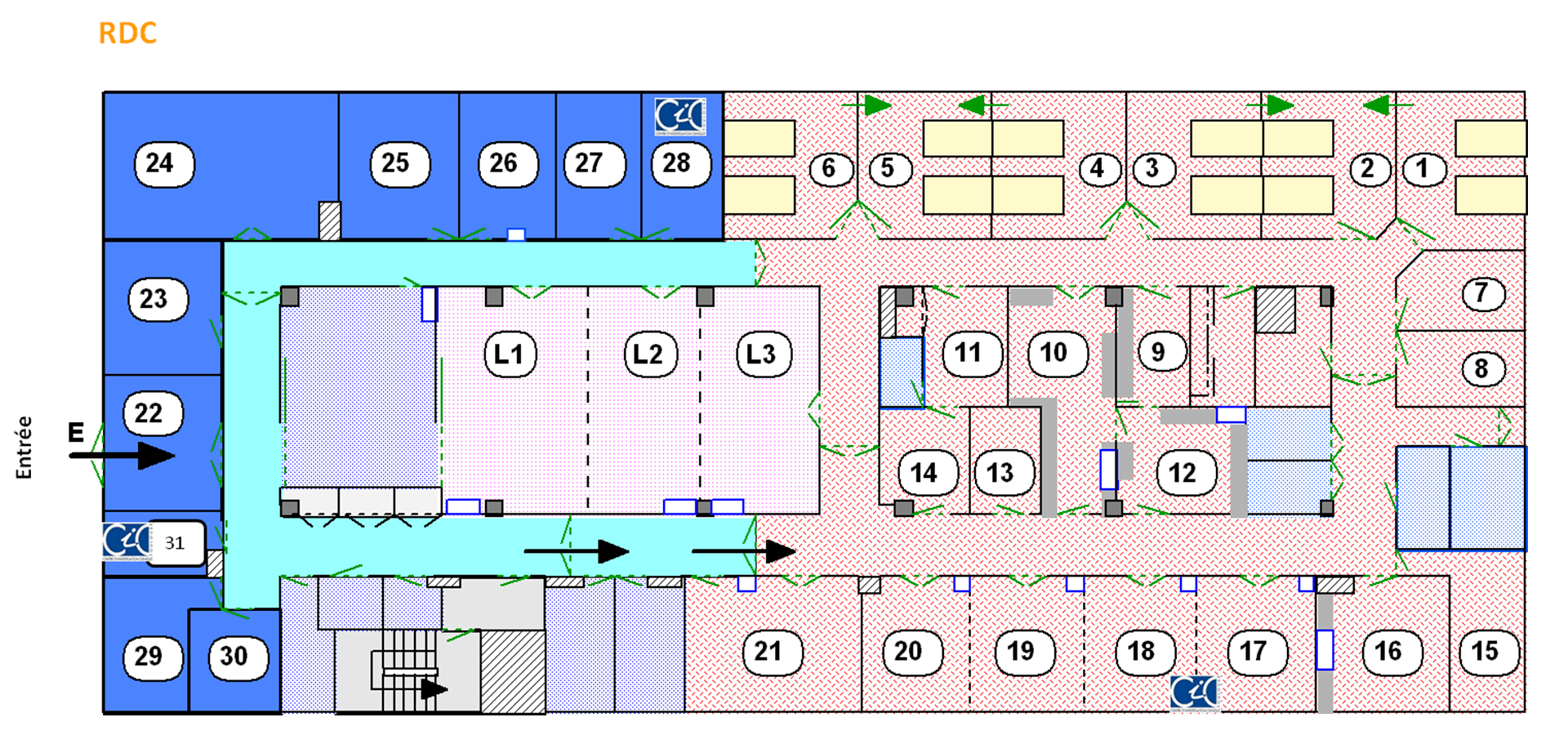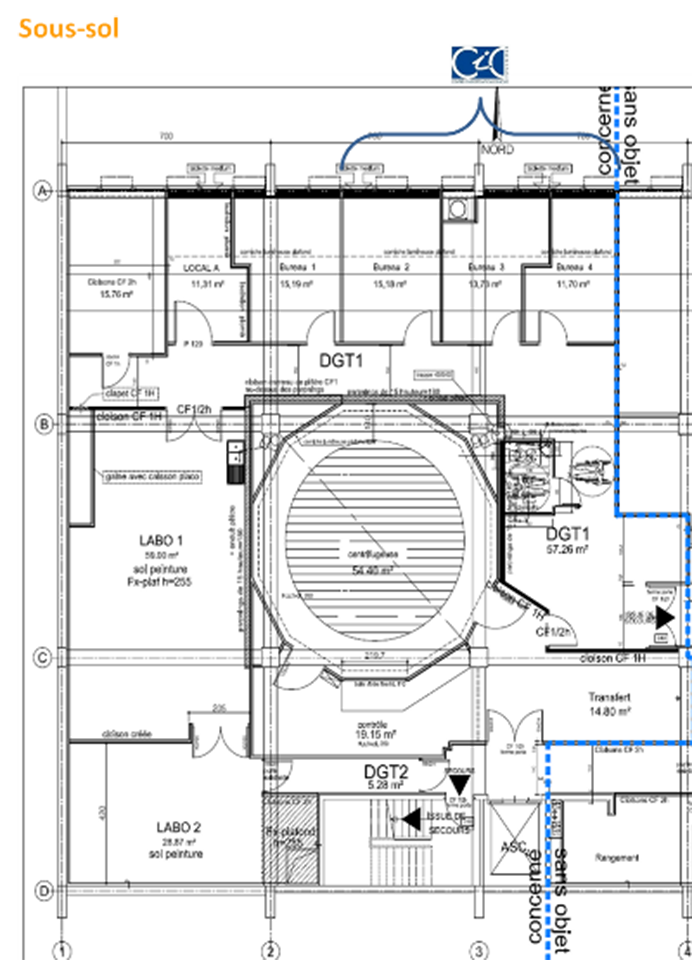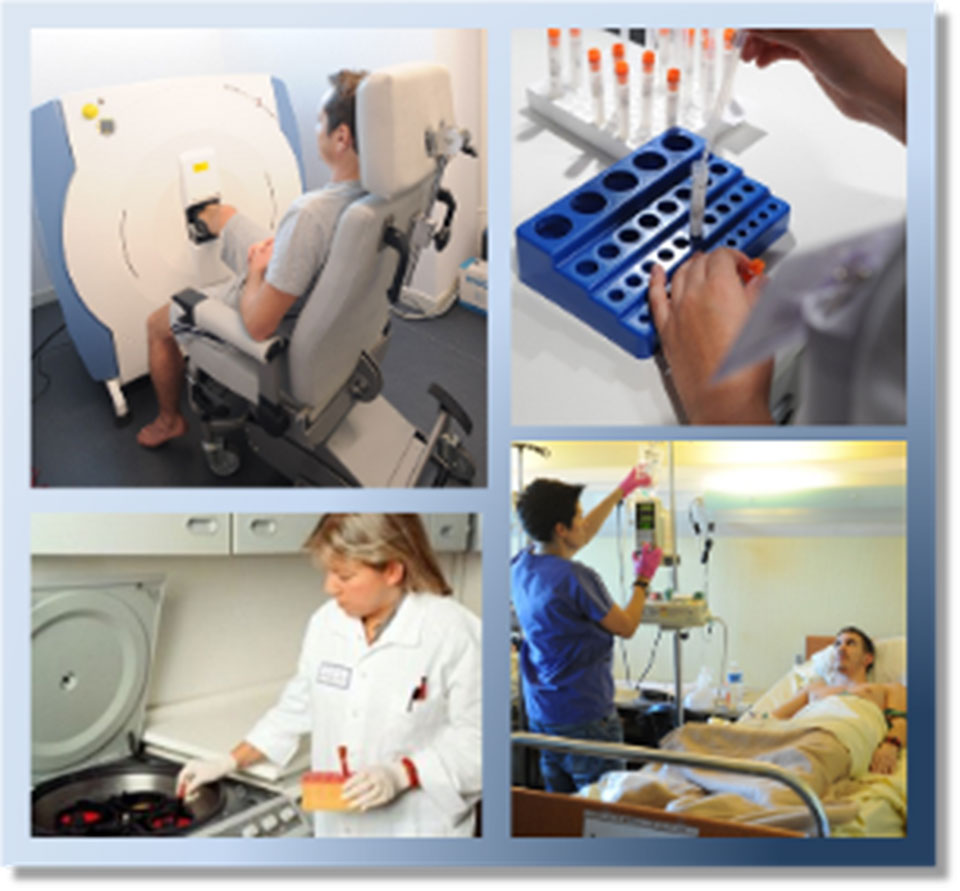Infrastructure
A unique clinical research centre
Inaugurated in June 1996, the Space Clinic is part of the MEDES complex on the campus of Toulouse University Hospital campus. The facility is the only one of its kind in the world to be located on a university hospital site.
MEDES benefits from over 25 years of expertise and cutting-edge technologies at the crossroads of space and health.
Covering an area of 1500 m², the Space Clinic is located on the site of the Rangueil hospital in Toulouse. The experimental structure can accommodate up to 14 volunteers at the same time, and offers all the biomedical equipment needed to guarantee the quality of research carried out there and the safety and welfare of the volunteers participating in the different studies.
The Space Clinic : a modular, controlled environment
1 – The office area
White part, from 22 to 30) and the main entrance (E)
2 – A multiprupose laboratory zone
(Zones L1-L3, 120 m 2 ) avec une entrée prévue pour de larges objets/équipements (2.50m x 2.50 m).
3 – The experimental zone
with highly controlled environmental conditions (red hatched area) such as: temperature ; light; acoustics (isolation from outside, -60 dB); psychomotor test laboratories; a logistic zone including nursery and biochemical laboratories; dry immersion rooms, 2 laboratories or one bigger laboratory and a specific laboratory where orthostatic tests (tilt test, stand test and lower body negative pressure test) can be performed.
4 – The basement houses
(right image), the short-arm centrifuge, XtremeCT scanner, some offices and an experimental area that can be adapted according to the specific needs of the experiments.
It should be noted that 4 offices on the ground floor and 3 in the basement are reserved for CICs.
The configuration of the Clinique Spatiale enables it to meet the different requirements imposed by a wide variety of protocols (modular areas can be used and equipped as bedrooms, laboratories or training areas).
The clinic is well equipped to conduct a wide variety of studies: Dexa scanner, XtremeCT scanner, driving simulator, tilt table, flywheel, short-arm centrifuge, polysomnography equipment, etc.
Furthermore, the scientific teams have access to the biomedical facilities of a fully-equipped hospital (PET, SPECT, MRI, CT-scan, laboratory tests, etc.), not to mention scientific expertise and collaboration with MEDES’s various partners (CNES engineers, Toulouse hospital specialists, university scientists).
The Space Clinic provides an opportunity for a large number of scientists to work together to collect precise physiological and medical data while implementing multi-investigator protocols. And the controlled environment and secure access to the facility guarantee the confidentiality of studies and biomedical data.
Many references
MEDES has conducted numerous clinical studies on such subjects as the physiological effects of physical inactivity (the effects of immobilisation during long-haul passenger flights, the effects of mechanical stress on bone turnover), the effects of medication on vigilance (while driving), sleep, pharmacokinetics, testing new medical devices (e.g. an instrument for measuring bone quality).




